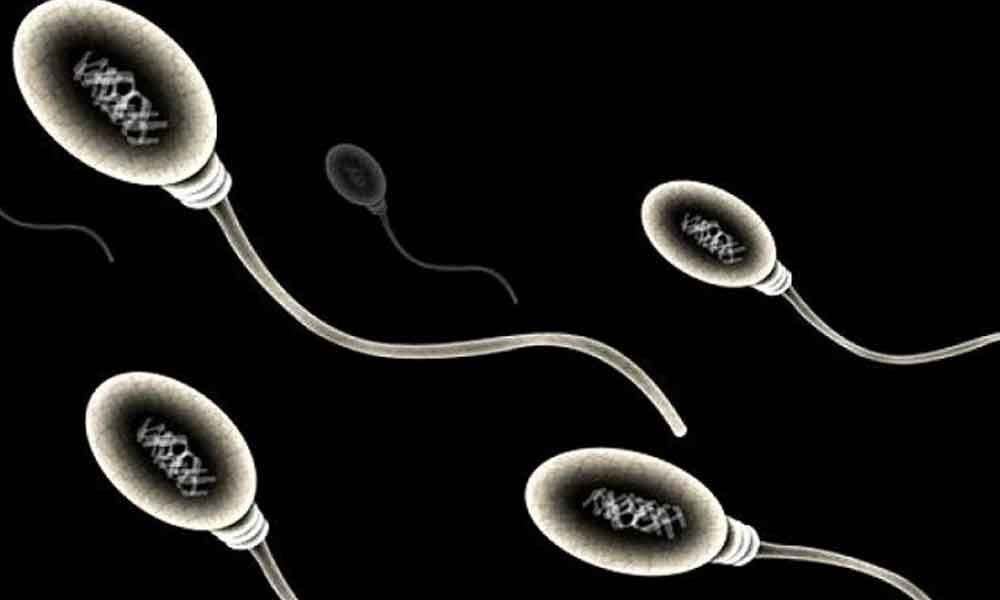Live
- Piyush Goyal participates in Mahila Shakti Shivir event, calls Bima Sakhi Yojana 'a revolutionary initiative'
- Death toll from Cyclone Chido in Mozambique rises to 94
- 13 criminals from two gangs arrested in Jharkhand's Ramgarh for extortion
- Union Minister Bandi Sanjay Visits Injured Boy Sritej at KIMS Hospital
- Construction of over 1,000 bridges underway in Assam: CM Sarma
- Telangana IAS Officers wives association meets president Droupadi Murmu
- Nara Devaansh Sets World Record with Checkmate Marathon
- India set to become developed nation by 2047: Haryana CM
- Allu Arjun’s house attacked by protesters demanding compensation for the stampede victim
- Several Gulf countries impose visa ban on Pakistanis over their involvement in crime, fraud and begging
Just In

Studies reveal that men too have ticking 'biological clock' just like women.
Washington: A study found that men who delay in starting a family can affect the health of their partners as well as the children in future. The study was published in the journal, 'Maturitas'. The study reviewed 40 years of research on the effect of parental age on fertility, pregnancy and the health of children.
"While it is widely accepted that physiological changes that occur in women after 35 can affect conception, pregnancy and the health of the child, most men do not realise their advanced age can have a similar impact," said Gloria Bachmann, the lead author of the research.
While the medical profession has not clearly accepted the definition of when does advanced paternal age begins, it ranges from 35 to 45. Infants born to fathers over 45 have risen 10 per cent in the United States over the past 40 years, likely due to assisted reproductive technology.
The study found that men who are 45 and above can experience decreased fertility and put their partners at risk for increasing pregnancy complications such as gestational diabetes, preeclampsia and preterm birth.
Infants born to older fathers were found to be at higher risk of premature birth, late stillbirth, low Apgar scores, low birth weight, higher incidence of newborn seizures and birth defects such as congenital heart disease and cleft palate. As they get mature, these children were found to have an increased likelihood of childhood cancers, psychiatric and cognitive disorders and autism.
Bachmann attributes most of these outcomes to a natural decline in testosterone that occurs with ageing, as well as sperm degradation and poorer semen quality, but she said that some correlations need more research.
"In addition to advancing paternal age being associated with an increased risk of male infertility, there appear to be other adverse changes that may occur to the sperm with ageing. For example, just as people lose muscle strength, flexibility and endurance with age, in men, sperm also tends to lose 'fitness' over the life cycle," she said.
The stress of ageing can cause damage to sperm which can lead to a decrease in sperm count and a change in the sperm and egg that is passed from parent to offspring and becomes incorporated into the DNA of cells in the offspring's body. "In addition to decreasing fertilisation potential, this can also influence the pregnancy itself, as is noted by increased pregnancy risks when conception is successful," she said.
These germline or heredity mutations also may contribute to the association of advancing paternal age and disorders in the offspring, such as these children being diagnosed with autism and schizophrenia.
"Although it is well documented that children of older fathers are more likely to be diagnosed with schizophrenia one in 141 infants with fathers under 25 versus one in 47 with fathers over 50 the reason is not well understood," she said.
The study also found that older men struggled with fertility issues even if their partner was under 25. She recommended that physicians counsel older men on the effect their age will have on conception, pregnancy and the health of their child.
If men plan on delaying fatherhood, they should consider banking sperm before their 35th or at least by their 45th birthday to decrease the increased risks to the health of the mother and child.

© 2024 Hyderabad Media House Limited/The Hans India. All rights reserved. Powered by hocalwire.com







